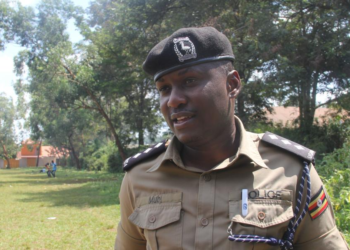Like Ugandans, Eritreans who live here have their cultural traditions for introductions and weddings, but unlike Ugandans they don’t spend much on weddings with the average wedding costing well under ten million shillings, far below the cost of most Ugandan weddings.
The introduction happens when the groom and a few friends meet with the family of the bride to ask for her hand in marriage, but the event consists of a simple lunch for the two families. The wedding ceremony itself will be held in the morning, normally a Saturday or Sunday, during which the bride and groom wear the traditional habesha outfits, and after the ceremony there is a breakfast for the families and the priest. The reception will be held that afternoon or the next day, probably at someone’s home. Close friends may buy crates of sodas, water or beer and a couple of goats or a cow is slaughtered. Guests come to the reception and wish the newly married couple congratulations. In the evening there is a party with traditional Ethiopian music and dance. There is unlikely to be a honeymoon, and the couple are normally back at work on Monday. However, if the groom has some money he will invest it by buying his wife gold jewellery.
While Ugandan weddings held in the village can be relatively simple affairs, this is not the case in the city, where couples hold wedding meetings for months in advance to fundraise and plan the event. Ugandan weddings are important occasions, and people will scrape together money to ensure that their friends and relatives have a great day. As well as the money put in by the couple themselves, substantial amounts are collected to pay for the paraphernalia that goes with the wedding such as the wedding dress, suits for the groom and groomsmen, bridesmaids’ dresses, hire of cars and decoration of the venue. People not only contribute to make the event a success but put in months of work on all the details. I think that Ugandans could make the best wedding planners in the world!
If any of the money that was raised for the wedding was used by the couple to make a down payment on a house, or as capital to set up a business, people would feel this was fraud, since the money has been raised solely for the wedding day. But wouldn’t it make more sense to raise money for something more substantial that would give the couple a good start in married life? While I have no problem with people having a special day, perhaps some of that money could be set aside for investment in the future.
While Eritreans spend relatively little on weddings and generally do not ask for contributions, they are prepared to lend each other money to start a business. If a family member has an established business, he may take in a cousin to work for him, and if the cousin proves himself, he will then give him a loan to set up on own. However, this is on the basis that the first priority is to pay back the loan. This is a matter of honour, and these loans rarely go unpaid.
I don’t think that there is anything in our traditional culture that says we must spend massive amounts on weddings. After all, a wedding is not an appreciating asset: beer, sodas and wedding cake are not bankable, so although we should have a memorable day, perhaps something could be invested for the future. I wonder what reaction there would be if a Ugandan couple said they were raising money, not only for the wedding but for a deposit for a house, would people still give? I think people would hesitate, but our unwillingness to invest in the future of the couple belies our lack of trust in each other. We are prepared to give money which will be blown in a day, but we are not prepared to invest in people.
Unlike Eritreans, Ugandans are reluctant to help each other by lending for business. This is understandable in the light of the many instances of Ugandan diaspora sending back money to family here for a project such as building a house, only to come home to discover they have a virtual house. However, this lack of trust and tendency to cheat each other puts Ugandans at a grave disadvantage when it comes to business, compared with other cultures. Indians are not trusting, but they give to family members to help them get a start. If some Ugandans were prepared to break the mould and invest in the future of others rather than in cake and soda, they could change this trend. And the time might come when it becomes the norm to trust one another and not be let down.
Do you have a story in your community or an opinion to share with us: Email us at editorial@watchdoguganda.com













